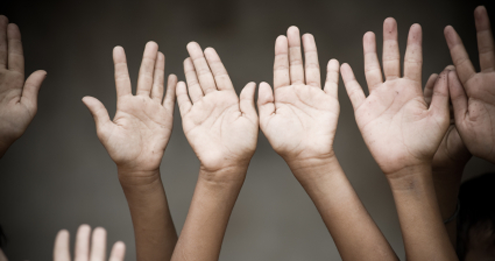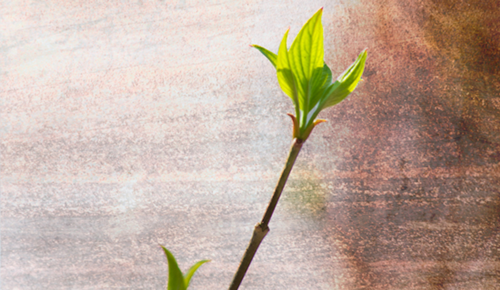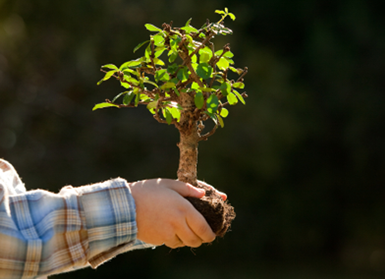Joshua Becker's Blog, page 141
May 29, 2012
4 Statements I Never Could Have Made 4 Years Ago
“Wouldn’t take nothing for my journey now.” - Maya Angelou
On this weekend, four years ago, my life changed forever. The Saturday started out typical: woke up, drank some coffee, ate some breakfast, and started in on the day’s project. It was the first morning of a beautiful three-day weekend in Vermont. My wife and I had decided to spend the Saturday spring-cleaning the house. My project was to clean out the garage. After the cleaning was finished, we’d begin relaxing and enjoying the holiday weekend. But my life was turned upside-down before we’d ever get there.
“Maybe you don’t need to own all this stuff,” was the last statement my old-self remembers hearing. It was said by my neighbor right after I began complaining to her about how much work it had become caring for our house – everything from my garage was piled in the driveway at the time. She had used the word “minimalist” earlier in the conversation. And at that very moment, I found minimalism… or it found me.
As a result, my life has been refreshed, rejuvenated… improved. It’s been a crazy ride. And over the last four years, my life has changed in ways I never dreamt possible. Just consider these four statements I never would have made four years ago:
1. I wish I owned less stuff. Since that weekend, it’s been a four-year journey of minimizing possessions from my home and life. We immediately went to work removing everything we no longer used or loved. At the end of the process, we took a breath. But soon thereafter, we began noticing more things around the house we could live without and began removing them as well. Even after another clean-sweep through the entire house, we still owned more than we needed. We removed some more… bought a smaller house… and continued the cycle. Of course, none of this happens in a vacuum: holidays and birthdays come and go, moments of consumer-relapse occur, new hobbies emerge, kids get older, tastes change. Even as someone trying to live a minimalist life, things still begin to collect around me. As a result, when I look around my house today, I still wish I owned less stuff. And that’s something I never would have said four years ago.
2. I don’t mind earning less than I did last year. Somewhere along this four-year journey of intentionally living with fewer possessions, an important realization occurred in my mind. Living with less means I can joyfully earn less… if the right opportunity presents itself. The measure of success in my life is no longer tied to my house, my car, or my paycheck. I will measure success in other ways: integrity, character, family, friendship, joy, love, peace (just to name a few). Because of that change in perspective, when a new career opportunity presented itself one year ago that offered so many of the things I most value in life, I accepted. Interestingly enough, I had turned down virtually the same position 6 years ago because of financial reasons. But last year, when it surfaced again, I took it despite the smaller paycheck. As a result, I earn less money than I did one year ago. But I don’t mind a bit.
3. I’d love to tell you my story. I love my newfound life. I have more time, more energy, more mental-capacity, and more money to pursue what is most important to me. Owning less means less burden, less anxiety, and less stress each and every day. Because of the numerous benefits, I love sharing my story with others. I love seeing the realization in someone else’s eyes that possessions are not the answer to our heart’s greatest pursuits. And I love inspiring other to come join a movement of men and women all over the world who have decided to intentionally live with fewer possessions. I enjoy sharing my story because it stands as a clear invitation to find something better… and I’m not sure I could have said that four years ago.
4. I know, deep-down, you want to own fewer possessions too. None of us really believe it. No one really believes that possessions equal joy. It’s just that we’ve been told so many times and from so many angles that we would be happier and more satisfied if we accumulate more, we have started to believe the lie more than we realize. Our lives begin to align with that pursuit. We start to buy bigger houses, nicer cars, newer technology, trendier clothing, and more toys for ourselves and our family. As a result, our possessions begin to burden us more than we recognize. They no longer serve us – instead, we serve them. But in our deepest heart, we know our possessions aren’t adding value to our lives. Even worse, we can probably recognize how they are subtracting from it. I know, deep-down, you want to own fewer possessions. I know because I’ve been there. And why else would the message of this article resonate so deeply inside you?

May 24, 2012
There’s No Sense Chasing the Wind
“Your diamonds are not in far distant mountains or in yonder seas; they are in your own backyard, if you but dig for them.” -Russell H. Conwell
I once heard the story of a man who walked into a travel agency and requested information for a cruise. “Where to?” he was asked. “I’m not really sure,” was his reply. The agent handed him a map of the world and proceeded to unfold it front of him. The customer took a good look at the map examining it from a number of angles. Finally, with a look of frustration, he looked up at the agent and exclaimed, “Is this all you have to offer?”
I often fear too many of our lives resemble this interaction. We search for happiness, fulfillment, and meaning. But we have seen this world and culture from all different angles. We have seen what it has to offer. And have found it is not enough to fully satisfy. We have searched for happiness in a number of its greatest offerings and have found most of them lacking – or at the very least, fleeting.
We have searched for happiness in a bigger paycheck… only to discover we immediately desired an even bigger one.
We have searched for happiness in a job promotion or recognition… only to discover the accolades don’t last.
We have searched for happiness in bigger homes… only to discover they are accompanied by burdensome mortgage payments.
We have searched for happiness in fancier cars… only to discover they get scratches and dings just like the others.
We have searched for happiness in alcohol and drugs and sex… only to discover the pleasure has disappeared by morning.
We have searched for happiness in large savings accounts… only to discover money can’t solve all our problems.
We have searched for happiness in the pursuit of our dreams… only to discover there are just more dreams on the other side.
Eventually, like Solomon in the Bible, we discover we’ve only been chasing the wind. We realize lasting happiness can’t be found in any of these things. And we are left with this simple, nagging question in the back of our mind, “Is this all that the world has to offer?”
Surely, lasting happiness and fulfillment can be found somewhere. There is something deep inside telling us that pursuing happiness is not an entirely futile endeavor. We just need to start looking in the right places.
Lasting happiness is found in faith, love, and relationships. It can be discovered in character, integrity, and service towards others. And the sooner we discover true fulfillment is only found in giving our lives to another, the sooner we can stop chasing happiness in the wind.

May 21, 2012
How To Raise Justice-Minded Kids
“Justice is the crowning glory of the virtues.” – Marcus Tullius Cicero
Good parents are intentional parents. They understand their parenting decisions today shape the lives of their children in the future. Whether we do it intentionally or unintentionally, strategically or haphazardly, our choices will inevitably shape the lives of our children as adults.
Most of us already know that to be true. That is why we discipline them when they disobey – so they will become responsible adults. That is why we help them with their homework – so they will value education. And that is why we enroll them in sports, dance, and summer camps – so they will become well-rounded, successful human beings.
Our choices steer our childrens’ lives. How then do we guide them towards a concern for others and a desire for justice in our world? How do we raise children to stand up against unfair practices, give to those in need, speak for the voiceless, defend the innocent, and not blame the victim?
The answer may not be as complicated as one might think. In fact, raising a justice-minded child is not that much different than raising a child who values athletics, academics, or art. The same principles apply.
The problem is that society champions athletes, academics, and artists. It gives trophies to athletes, awards to academics, and accolades to artists. Our schools offer classes for academics, after-school clubs for artists, lessons for dancers, and coaches for athletes. But rare is the community that champions justice. As a result, we as parents need to take the lead in raising justice-minded kids and take it upon ourselves to accomplish that goal.
To help us accomplish that goal in our child’s life (no matter their age), we need to intentionally include these four principles in our parenting:
1. Embrace the idea of a justice-minded child. Wise parents give significant thought to what type of person they are raising. They make their choices intentionally. And then they strategically steer their children down that road. In the same way, raising a justice-minded child begins with a decision to raise a justice-minded child. This first step is absolutely essential and can not be overstated. Giving up your privilege for the rights of others is a counter-cultural mindset. It will not be found until is deliberately sought.
2. Exemplify a justice-minded life for your child. Our children are watching. They are noticing our lives. And our actions speak a thousand times louder than our words. Simply put, if our children don’t see us model a concern for social justice in our own life, they are not going to care about it either – and it would be unreasonable to assume they would. On the other hand, if they see us model social justice, compassion, and service on a regular basis, they are going to realize the importance of it. So offer to make a meal for the family of an unemployed friend, buy extra Christmas gifts for the orphan, take a stand against corporations that exploit children, and speak up for those without a voice. Your son or daughter will notice… they always do.
3. Expose your child to the issues of social justice in your community and around the world. I love the idea of a son who appreciates baseball. Because of that, I take him to baseball games, we play catch in the backyard, and talk about it at the dinner table. I know exactly what I’m doing… I’m teaching him to value the sport so that we can enjoy it together as he gets older. In the same way, if we want to raise justice-minded children, we need to expose them to issues in our community and around the world that demonstrate the need for justice. Talk about it at the dinner table. Get a children’s book from the library that raises the issue. Find a movie that portrays injustice and discuss it afterwards. Organize a time to serve as an entire family – your children are never too young to be exposed to the needs of others in our world.
4. Encourage them as they get involved. The old saying is still true, “What gets rewarded gets done.” One of the greatest ways to motivate our children towards an end is by using encouraging, positive words. That is why every time they clean up their toys or dirty laundry, we praise them – so they continue down the road they started. When you see your child display a concern for justice (which they inevitably will if you follow through on the other first three principles), be sure to praise them loudly and consistently. After all, an act of justice towards a fellow human being deserves a far greater applause than hitting a baseball.
The author, Hodding Carter, Jr. once said, “There are two lasting bequests we can give our children. One is roots. The other is wings.” Give your children firm roots in the importance of standing up for those who can’t… and watch them soar to create a better world than they found.

May 15, 2012
Influence. You Already Have It.
“You don’t have to be a “person of influence” to be influential. In fact, the most influential people in my life are probably not even aware of the things they’ve taught me.” - Scott Adams
Our lives matter. This is indeed life-giving news to each of us. Deep down, we all want to live lives that make a difference, create an impact, and change the world around us. We were designed to live for something greater than ourselves. And each of us were born with an ingrained desire to accomplish that.
As a result, our world cares about influence. We pay for it, fight for it, and study how to get more of it. Our world measures it, ranks it, and ascribes it to people for foolish reasons. But in our constant struggle to attain influence, we often miss out on one very important truth:
We already have it. Each of us is already an influencer of others.
In fact, to live is to influence. If our lives interact in any way with other people (at home, at work, on-line, or in our community), we have influence. We change lives. We affect people every single day with every word we say and every action we choose. In short, our lives already matter.
And it would be wise for us to stop always asking how to acquire more and instead, start asking what to do with the influence we already have.
Because the influence we already have in this world is both a great and challenging opportunity. After all, it can be positive or negative. It can add value to the lives of others or it can take value away. Our influence can become an important agent for change or it can further cement the status quo. It can make our world a better place to be or a crummier place to endure. There are no neutral contributors in this world.
So let’s make a special effort to be a positive influence in the lives of others by…
Modeling for others - living exemplary lives of character, integrity, and morality.
Celebrating others - affirming their uniqueness and motivating them to celebrate it too.
Encouraging others - steering others towards true life and convincing them to receive it.
Inviting others - offering a better way to live life and giving them the tools to embrace it.
Challenging others - pushing others towards positive life change.
Mentoring others - intentional relationships of life-change giving our lives to another.
Because the sooner we stop spending all our time trying to earn influence, the sooner we can start taking full advantage of the influence we already have.

May 8, 2012
Becoming Minimalist: Start Here.
 Welcome to Becoming Minimalist. If you are new to this site, know that you are not alone. In fact, while Becoming Minimalist is honored to have tens of thousands of regular readers, there are thousands of readers each day that stumble on to this site for the first time. And to you, a special welcome. I’d love to make your experience here as comfortable as possible.
Welcome to Becoming Minimalist. If you are new to this site, know that you are not alone. In fact, while Becoming Minimalist is honored to have tens of thousands of regular readers, there are thousands of readers each day that stumble on to this site for the first time. And to you, a special welcome. I’d love to make your experience here as comfortable as possible.
More than anything else, this is a site designed to inspire you to pursue your greatest passions in life by owning fewer possessions. It is based on the realization that there are far more important things in life to accomplish.
Our story begins on a beautiful three-day weekend at our home in suburban Vermont. The sun was shining, the flowers were blooming, the grass was beginning to green, and the trees were budding. I was cleaning my garage, my wife was cleaning the bathrooms, and my 5-year old son was in the backyard asking us to come play with him. At that very moment, I struck up an entirely coincidental, life-changing conversation with my neighbor who commented, “Maybe you don’t need to own all this stuff.” The juxtaposition was striking. My possessions piled up in the driveway… my son in the backyard… my day slipping away… I immediately recognized something needed to change. My belongings were not adding value to my life. Instead, they were subtracting from it.
We began donating, recycling, and removing as many of our possessions as possible. We embarked on a minimalist journey to own less stuff. As a result, we discovered more money, more time, more energy, more freedom, less stress, and more opportunity to pursue our greatest passions: faith, family, friends.
And we decided to write about it.
At first, Becoming Minimalist served as an online journal for our decluttering progress. But it quickly became a place to encourage others, the word “becoming” representing an open invitation to all. It does not boldly require anyone to “be” minimalist overnight – nor does it specifically define the word for you. Instead, it encourages you to consider the journey and the far-reaching benefits that come from owning less. This is a blog dedicated to rational minimalism and discovering what that uniquely means for each of us. And the more who are introduced to this life-changing message, the better! Because we’re all just trying to make the most of this journey called life.
To be introduced to our simple message, start with one of our most popular posts:
The 10 Most Important Things to Simplify in Your Life
35 Gifts Your Children Will Never Forget
15 Clutter Busting Routines For Any Family
Or to be further convinced of the importance of owning less, try one of these posts:
Don’t Just Declutter. De-own.
10 Reasons to Escape Excessive Consumerism
The Life-Changing Benefits of Minimalism
We learned quickly that our journey to live with less on the outside would also force our attention inward:
Stop Comparing Your Life. Start Living It.
20 New Ways to Judge Others
Learning to Consider Gratitude a Discipline
And would be entirely unique because of our life’s values. After all, we have children, live in the suburbs, and work full-time.
Find a Rational Minimalism that Works For You
Our story has been seen on the CBS Evening News, National Public Radio, The Guardian, and various interviews/reviews you can find all over the Internet. Here are just a few:
Smart Planet
Rowdy Kittens
Albany Times Union
Over the course of the last four years, we’ve written three books. And while much of the content in the books can be found on this site, it has been organized and formatted in a far-friendlier format in the books. They tend to sell pretty well.
Simplify: 7 Guiding Principles to Help Anyone Declutter Their Home and Life
Inside-Out Simplicity: Life Changing Keys to Your Most Important Relationships
Coming Soon. Currently scheduled to be published in Fall, 2012.
And if you really can’t get enough, feel free to browse our archives. But be warned, there’s a bunch of information there.
We add one or two new posts each week. If you’d like to receive them over e-mail, you can sign up here. Or you can receive them in a web reader format. We’re also connected to our community through various social networks. Here’s where you can find us:
Facebook: Daily inspiration quotes.
Twitter: Quotes, thoughts, links.
Tumblr: Interesting stuff found on-line during research.
Pinterest: Promoting simplicity in home and life.
If you’ve heard enough and are convinced to try it out yourself, you’ll find some good suggestions here: 7 Ways to Sample Living With Less.

April 30, 2012
11 Life Skills Learned Blogging
“You can learn something every day if you pay attention.” - Ray LeBlond
Believe it or not, becoming a blogger was never something I planned. In fact, when I tell the story, I always mention Becoming Minimalist was originally started as just an online journal for our decluttering and minimizing journey.
But somewhere along the way, I began to notice the positive effect it was having on my life and others. Not only was this website becoming an inspiration to thousands (eventually millions) around the world, it was beginning to change me in positive ways I had not expected. Sure, it served its purpose of an online journal, but far more than that, the discipline of blogging was forcing me to learn new life skills – life skills that are highly transferable to other endeavors.
11 Life Skills I’ve Learned from Blogging:
1. Writing. Certainly blogging has helped refine my grammatical skills (less vs. fewer, affect vs. effect, etc.). But far more importantly, blogging has forced me to formulate arguments and communicate inspiration using the written word.
2. Risk-taking. Every time I hit “publish,” I take a risk. There is always going to be a sense of risk associated with good writing as it seeks to advance a particular ideal. But the more practice one gets in expressing their opinion, the easier the risk becomes.
3. Being Entrepreneurial. I’ve never considered myself the entrepreneurial type (one who organizes, operates, and assumes the risk for a business venture). But blogging has allowed/forced me the opportunity to do just that… and discover the excitement that comes with it.
4. Networking. Sitting at my computer when I created an account for www.becomingminimalist.com, I never dreamt it would provide such opportunity to meet and develop genuine friendships online. But as a result of networking and connecting, there are now numerous fellow bloggers around the country that I consider true friends (if they asked me for help, I’d be there… and vice-versa).
5. Selling. “Selling” may sound like an odd life skill coming from an author who routinely criticizes our modern culture of consumerism. But blogging has helped teach me the art of selling – a life skill that deserves to be on this list. Because every day of our lives, we sell. We sell our ideas, our opinions, our worldviews, and even ourselves to the people that we meet.
6. Taking criticism. Not all comments are positive. Not all reviews are positive. And not all links leading to this website are positive. In fact, some are downright mean. But humbly learning from criticism is an important life skill that I am glad to have developed from blogging. (And knowing when/how to completely disregard a negative comment is also valuable).
7. Being observant. Once a person begins writing about life and the thoughts that shape it, they begin thinking more intentionally about who they are, who they are becoming, and what factors are shaping their journey. As a result, I have learned to become far more observant to the world around me in almost every imaginable way.
8. Reading. It’s true what they say, “Writers read.”
9. Promoting others. Blogging has helped teach me the pie is not finite – there is plenty of success to go around. One man’s/woman’s success does not mean less opportunity for my own. In fact, their success can be yours if you help them get there. In short: Compete less, encourage more.
10. Promoting self. There are hundreds of millions of websites. Your blog may provide valuable information to readers. But if nobody knows it exists, it isn’t helping anybody. At some point, you are required to promote your work to others… and that requires the confidence and humility to engage in healthy self-promotion.
11. Balancing. Family, work, rest, blogging, community, exercise. Striking a healthy balance among each of them is required for long-term success in any of them.
Could I have learned these life skills elsewhere? Absolutely. But for me, it wasn’t until I started blogging that I was forced to explore, research, and develop these highly-transferable skills. And for that, I am very grateful. Becoming Minimalist has been (and continues to be) a life-changing adventure. Thanks for being part of it.

11 Life Skills Learned from Blogging
“You can learn something every day if you pay attention.” - Ray LeBlond
Believe it or not, becoming a blogger was never something I planned. In fact, when I tell the story, I always mention Becoming Minimalist was originally started as just an online journal for our decluttering and minimizing journey.
But somewhere along the way, I began to notice the positive effect it was having on my life and others. Not only was this website becoming an inspiration to thousands (eventually millions) around the world, it was beginning to change me in positive ways I had not expected. Sure, it served its purpose of an online journal, but far more than that, the discipline of blogging was forcing me to learn new life skills – life skills that are highly transferable to other endeavors.
11 Life Skills I’ve Learned from Blogging:
1. Writing. Certainly blogging has helped refine my grammatical skills (less vs. fewer, affect vs. effect, etc.). But far more importantly, blogging has forced me to formulate arguments and communicate inspiration using the written word.
2. Risk-taking. Every time I hit “publish,” I take a risk. There is always going to be a sense of risk associated with good writing as it seeks to advance a particular ideal. But the more practice one gets in expressing their opinion, the easier the risk becomes.
3. Being Entrepreneurial. I’ve never considered myself the entrepreneurial type (one who organizes, operates, and assumes the risk for a business venture). But blogging has allowed/forced me the opportunity to do just that… and discover the excitement that comes with it.
4. Networking. Sitting at my computer when I created an account for www.becomingminimalist.com, I never dreamt it would provide such opportunity to meet and develop genuine friendships online. But as a result of networking and connecting, there are now numerous fellow bloggers around the country that I consider true friends (if they asked me for help, I’d be there… and vice-versa).
5. Selling. “Selling” may sound like an odd life skill coming from an author who routinely criticizes our modern culture of consumerism. But blogging has helped teach me the art of selling – a life skill that deserves to be on this list. Because every day of our lives, we sell. We sell our ideas, our opinions, our worldviews, and even ourselves to the people that we meet.
6. Taking criticism. Not all comments are positive. Not all reviews are positive. And not all links leading to this website are positive. In fact, some are downright mean. But humbly learning from criticism is an important life skill that I am glad to have developed from blogging. (And knowing when/how to completely disregard a negative comment is also valuable).
7. Being observant. Once a person begins writing about life and the thoughts that shape it, they begin thinking more intentionally about who they are, who they are becoming, and what factors are shaping their journey. As a result, I have learned to become far more observant to the world around me in almost every imaginable way.
8. Reading. It’s true what they say, “Writers read.”
9. Promoting others. Blogging has helped teach me the pie is not finite – there is plenty of success to go around. One man’s/woman’s success does not mean less opportunity for my own. In fact, their success can be yours if you help them get there. In short: Compete less, encourage more.
10. Promoting self. There are hundreds of millions of websites. Your blog may provide valuable information to readers. But if nobody knows it exists, it isn’t helping anybody. At some point, you are required to promote your work to others… and that requires the confidence and humility to engage in healthy self-promotion.
11. Balancing. Family, work, rest, blogging, community, exercise. Striking a healthy balance among each of them is required for long-term success in any of them.
Could I have learned these life skills elsewhere? Absolutely. But for me, it wasn’t until I started blogging that I was forced to explore, research, and develop these highly-transferable skills. And for that, I am very grateful. Becoming Minimalist has been (and continues to be) a life-changing adventure. Thanks for being part of it.
***
 Speaking of entrepreneurship, networking, (and selling), two online friends who have been very influential in Becoming Minimalist’s success are currently hosting an unbelievable 72-hour sale featuring $1000 worth of Business Guides for only $100. Topics covered in the bundle sale include blogging, free-lancing, selling, passion, finding confidence, among others. And while business ventures interest only a percentage of our readers, if it is included anywhere in your hobbies, interests, or dreams, you will benefit greatly from this sale. Check it out – it only lasts the next 72 hours.
Speaking of entrepreneurship, networking, (and selling), two online friends who have been very influential in Becoming Minimalist’s success are currently hosting an unbelievable 72-hour sale featuring $1000 worth of Business Guides for only $100. Topics covered in the bundle sale include blogging, free-lancing, selling, passion, finding confidence, among others. And while business ventures interest only a percentage of our readers, if it is included anywhere in your hobbies, interests, or dreams, you will benefit greatly from this sale. Check it out – it only lasts the next 72 hours.

April 23, 2012
The Life Cycle of a Minimalist
Editor’s Note: This is a guest post by Lori Lippincott of Loving Simple Living.
“If you are facing in the right direction, all you need to do is keep on walking.”
While I may still be relatively new to minimalism, I find great value sharing with others the process that has brought me here step-by-step.
Sometimes, it is hard to imagine the process that goes behind the scenes in the life of a minimalist. But from my conversations, I have found most seem to follow the same general path, thought-process, and even struggles throughout their journey. You may be further along than me, you may be struggling through the first steps, or you may have stumbled upon this site and are being introduced to minimalism for the first time. But no matter where you currently place yourself on the journey, considering the life cycle of a minimalist will surely bring encouragement to you.
The Life Cycle of a Minimalist:
Stress, Overwhelmed, Searching – Everyone reaches the point where they are open to change differently. It might be a money crunch, or a time crunch. It might be a searching for purpose. It might be wanting more energy for a relationship that is valuable to you. Somewhere, something blows a little steam switch in your brain and you decide (intentionally or not) that maybe the way you are doing things isn’t working as well as you thought.
Awareness – You see or hear of someone who is living a minimalist lifestyle. Sure you know you don’t need things to be happy, but the idea of intentionally living with much less never really entered your mind. It’s not rocket science, but for some reason, you never really considered it an option before. Initially it may seem crazy, but as the idea sits for a while it seems less and less crazy, just different.
Curiosity – As the idea sits in your head you look for other information. You may look online for blogs, read books, or talk to friends. You start to play out the idea in your head when you look at your house imagining what it might look like if you made the change.
Action – Your imagination sticks its toe in the water of reality. You tackle the first project. It may be as simple as cleaning out a closet, the family junk drawer, or a spare room. For me it was cleaning off a bookshelf. I was amazed to discover I could easily get rid of 80% of its contents.
Excitement – After the first project, a new sense of excitement emerges. Closets start getting emptied, floors get covered in piles, the basement looks like a tornado hit, and the car won’t fit in the garage. You develop the distinct goal to live a more simple, minimalist lifestyle and it is exciting as you begin.
Setback – You hit a setback. It might be work gets busy and you have less time in the evening to declutter, you might hit a family emergency, someone might question why you are doing what you are doing (because sadly, that is one of our biggest fears in life). Or maybe you get rid of something you end up needing and have to go buy again making you question your own sanity.
Exhaustion – Stepping over piles and having the house torn apart gets old. Spending all the time sorting has tired you out. Finding people to buy or places to donate has become frustrating. The process seems never ending and it feels like the house is just as full as it was when you started. Your excitement is waning and your energy is on its last leg.
Strength – Finally some big piles get moved out. Maybe a garage sale or your 10th trip to the Goodwill drop-off finally let you see the light at the end of the tunnel. For the first time in years you realize that you actually know what is in your house (all the closets, garage, and more) and what is still there is what you have specifically chosen to keep. Finally it feels like you are over the hump and excited about the real progress you have made.
Incorrect Finish line – You get to the end. You have gone through everything in your house and got rid of lots. Maybe 30%, 50%, 80% of your material belongings? The place looks different. It looks and feels so good. You pat yourself on the back for a job well done.
More decluttering – Over the next few months, while walking around your house and cleaning, you find more and more items you are willing to remove. Maybe you were afraid to get rid of it during the first big sorting, but now you don’t know why you kept it. You end up with more and more sale and donation piles growing around your house again.
Holidays or stuff purchasing slips – Your home begins to collect more material things through holidays, gifts, or your old purchasing habit that sometimes sneaks around the corner and catches you off-guard.
More decluttering – Dealing with #11 and still living #10.
More decluttering – Realizing #10 is still going on a year down the road… and #11 really never ends fully.
Understanding that right sizing your life is not a destination but a journey. Whether you keep cutting back or life changes require you to gain more material possessions, you stick to intentionally owning only what you need and truly want. You have learned how to make possessions a servant instead of a master and have exercised your control over it. You have reached the other side, but the other side is much more personal mastery than you originally thought. It isn’t so much about a specific number of things you own, but a healthy understanding of the proper place of material things in your life. You are free to tackle growth in other areas of your life… always striving to grow and becoming a better version of yourself.
Photo Credit: Bryon Lippincott
***
Lorilee Lippincott writes at Loving Simple Living where she encourages others to live a more simplified life. Her book, 3-2-1 Stop Running. Start Living is currently available for $9.97. Or you may enjoy following her at Twitter.

April 16, 2012
7 Common Problems Solved by Owning Less
“Anything you cannot relinquish when it has outlived its usefulness possesses you, and in this materialistic age a great many of us are possessed by our possessions.” - Peace Pilgrim
Three years ago, we sold, donated, or discarded over 70% of our family’s possessions. We removed clothes, furniture, decorations, cookware, tools, books, toys, plus anything else we could find in our home that was not immediately useful or beautiful. The result has been a completely transformed life and lifestyle. It is a decision we have never regretted.
The intentional choice to live with fewer possessions has brought with it a great number of benefits. It has been the answer to much of the discontent we felt in our lives when we owned more. And the decision holds the potential to do the same for you.
Consider these Seven Common Problems that Can Be Solved by Owning Fewer Possessions:
1. “I don’t have enough money / I’m in debt.” The simplest solution to almost every money problem is “spend less.” In fact, it’s the first step in almost every financial program ever devised. Purposefully deciding to own fewer possessions is an important step in getting your financial house in order – and often times, it’s the only step you really need to take.
2. “There’s just not enough time in the day.” We were immediately surprised at how much extra time we found in our lives after removing our unnecessary possessions. We came to realize, if we aren’t careful, the things we own quickly move from “time-saving” to “time-consuming.” Just think about all the time we waste caring for our possessions: shopping, researching, organizing, picking up, cleaning, repairing, replacing – even earning the money to buy them in the first place. And the reality is, it can be difficult to determine how much time our possessions are actually stealing from us until we actually remove them.
3. “There’s always so much cleaning to do / Even after I clean, my house feels cluttered.” Want to have a cleaner home? Own less stuff. It works every time.
4. “My house is too small / There’s never enough storage around here.” Chances are pretty good that your house isn’t too small – you’ve just put too much stuff inside it. Case in point: according to statistics, the average house size in America has doubled since the 1950′s… yet, many of us still think that we need something bigger. You probably don’t. And removing the unneeded possessions from your home and life will likely provide the opportunity for you to discover that again.
5. “I’m too stressed.” The artist and philanthropist, John Ruskin once said, “”Every increased possession loads us with a new weariness.” Every increased possession weighs down our lives with new things to worry about, care for, and maintain. Our purchases have far surpassed bringing convenience and ease into our lives. In fact, they have begun to do just the opposite – they have brought new forms of stress and anxiety instead.
6. “I can’t decide what to wear / It’s so hard to keep up with the changing fashions.” On the surface, fashion appears to be an ever-evolving game where the rules change with each passing season. As a result, it demands astute attention (and an expansive income). But it does not have to. Instead, carry a beautiful wardrobe filled with a few timeless pieces that you truly love to wear. Once you love everything hanging in your closet, deciding what to wear will be one less problem to deal with in your morning.
7. “I wish I had…” Our culture begs us to own more. Advertisements call us to purchase the latest and the greatest. Our natural tendencies cause us to compare our lives with those around us. And we seem to have a built-in desire to impress others by owning as much as possible. As a result, we spend precious energy wishing we had more. But this constant dreaming, hoping, and envying other’s possessions is stealing from our joy and contentment today. It makes us feel like we are missing something – even though there is so much joy right in front of us.
We made the decision years ago to live with fewer possessions. Sometimes, I get asked, “Do you think you’ll always live with a minimal number of possessions?” My response is always the same, “Oh yeah, I’m never going back. There is just too much joy and freedom on this side.”
And I cherish the opportunity to invite others to experience it as well…

April 9, 2012
The Curiously Tragic Case of the Bonsai Tree
“Never underestimate the power of dreams and the influence of the human spirit. We are all the same in this notion: The potential for greatness lives within each of us.” – William Rudolph
When I was growing up, one of my family’s favorite exhibits at the County Fair was the Bonsai Tree collection. Our community had a strong group of Bonsai Tree Lovers that met regularly to refine their craft. Each year, at the County Fair, the group would come together to display their art. The exhibit would typically feature over 100 Bonsai trees. They came in various sizes, shapes, and colors. Some were pretty to look at and some not so much, but the exhibit was always guaranteed to draw a large crowd.
Being young, I always assumed Bonsai trees were special trees that only grew really small. It wasn’t until I was older that I learned these miniature trees are no different than any other tree – left on their own they would grow into full-sized trees (much like the trees that composed the forest around our home). But rather than being allowed to reach their fullest size, Bonsai trees are planted in miniature pots, their roots are stunted, and their branches are pruned incessantly. As a result, Bonsai trees never grow to their fullest potential.
And while I completely understand and appreciate the art displayed in the meticulous work of maintaining a Bonsai tree, there is still a piece of me that senses a curious tragedy in this scenario. This tree designed for a great and powerful future has been stunted in its growth.
Yet, this tragedy pales in comparison to the similar tragedy that plays out in so many of our lives on a daily basis. We were designed to accomplish great things. Our lives are unique and perfectly prepared to become something special. We are called to make a significant difference in this world and in the lives of those around us. But far too often, our life’s full potential is stunted.
Of course, our growth is not stunted by pots, soil, or pruning. Instead, it is hindered by…
Unhealthy habits
Short-sighted pursuits
Misplaced pride
Excessive consumerism
Unintentionally in relationships
Crippling fear
or Clinging too tightly to the past.
Your life… our lives… hold great potential for this world. Each in our own way, we are designed to make a significant difference. May we intentionally evaluate them. And find the strength to make the changes – both big and small – needed to realize it.












